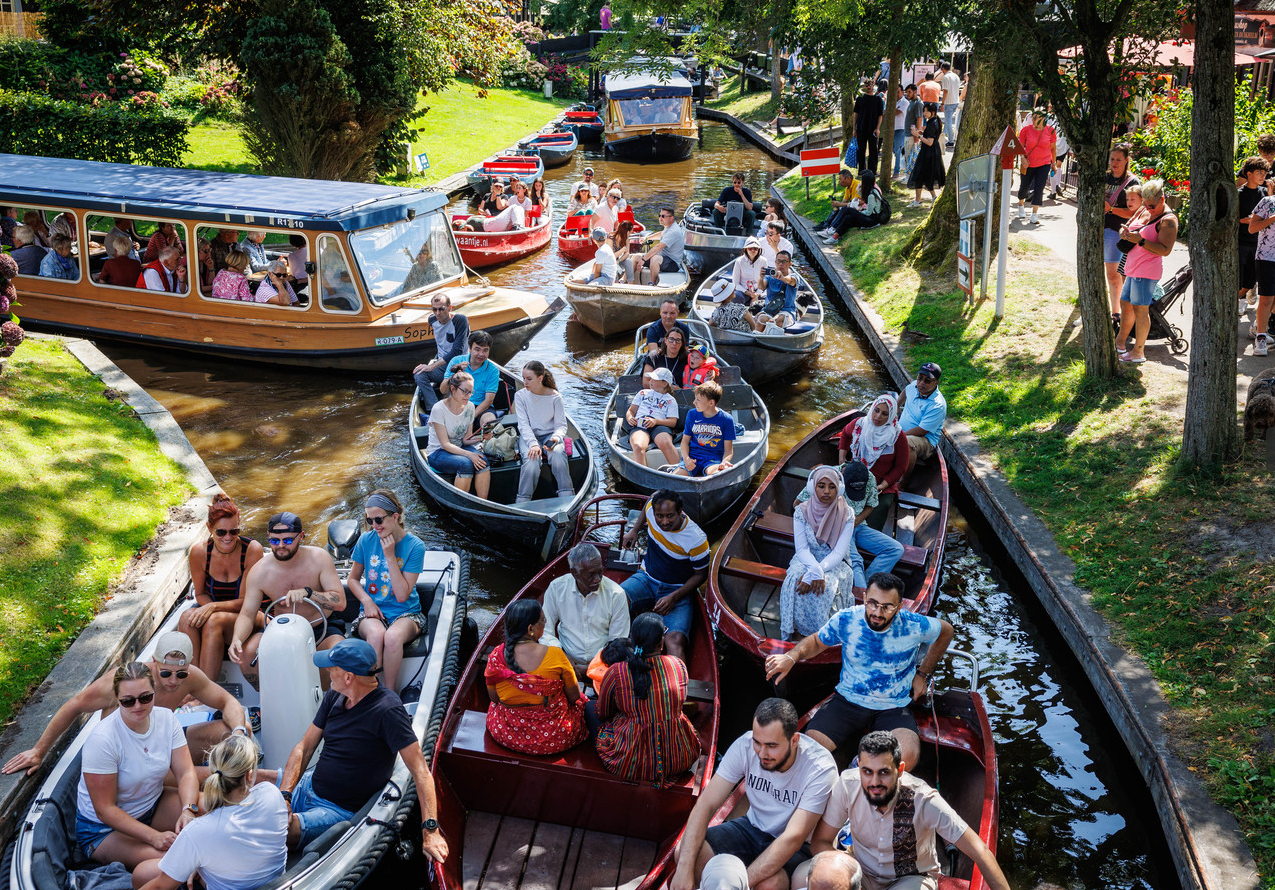
Increasing overtourism: how do we turn the tide?
Tourism-related disturbances have been nearly impossible to avoid this year. Protests in Mallorca, Ibiza, and the Canary Islands have been widely reported, and just yesterday, Dutch newspaper De Stentor published an article about the overcrowding in Giethoorn (30,000 visitors on peak days!!). Something seems to have snapped this year. The situation in Spain, in particular, stands out.
The Middle Class Displaced
A few years ago, the focus seemed to be more on street overcrowding and the nuisance it caused. This year, however, there has been a real shift towards the negative impact on the overall well-being of the local population, particularly the (un)availability of housing and its dire consequences. In Barcelona, the middle class is being driven to the outskirts as landlords increase rents by 1,000 euros in popular (tourist) neighborhoods. In Ibiza, restaurant and club staff live in tent camps because their gross income (including tips) of 1,500 euros is insufficient for "normal" housing.
Causes: The Perfect Storm
As a result, the local populations of well-known tourist destinations are speaking out more than ever this year. The central theme—"this can’t go on, it’s no longer sustainable for residents"—is growing louder. The question is, "What next?" Since COVID, not only has tourism made a massive comeback in Spain, but the rise of remote work has also brought a new influx of people: the digital nomads. Additionally, the enormous growth in the number of single-person households over the last 30 years has only further increased pressure on the housing market.
What Could Work?
There is no simple solution. However, policymakers at both local and national levels could take some measures that might indeed be effective:
- Better protection for existing tenants by making exorbitant rent increases impossible.
- Significantly increase tourist taxes during the peak season.
- Possibly introduce a quota on the number of rented beds allowed during the peak season.
The first measure requires legislation, which won’t happen overnight. But it is feasible because, in the Netherlands, tenants are well-protected. Why couldn’t this be the case in Spain
Living for Tourism or Tourism to Live
The last two suggestions are certainly not new or revolutionary, but they are often dismissed as "unfeasible, undesirable, harmful to tourism, etc., etc." But these are complete fallacies. When an industry has such undesirable effects on life and livability itself, there can only be one conclusion. And that is that the cure has become worse than the disease. So maybe a little less of the cure isn’t such a bad idea.
 An overcrowded canal in Giethoorn. Photo by de Stentor
An overcrowded canal in Giethoorn. Photo by de Stentor




